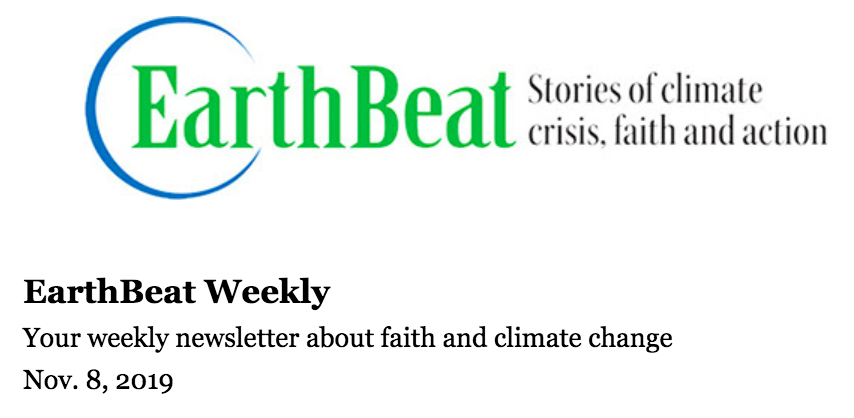
First, a reminder that EarthBeat Weekly is the new version of the Eco Catholic newsletter that many of you have subscribed to for some time. In addition to EarthBeat stories, we'll link to some of the top climate change news of the week -- and sometimes simply climate-related stories we find interesting. We welcome your suggestions for the newsletter and links to stories you'd like us to share. If you're not already receiving this by email -- or you'd like to recommend EarthBeat Weekly to a friend -- here's the sign up link.
Scientists have been warning us about an impeding climate crisis for decades. The latest statement, issued this week, came on the 40th anniversary of the first World Climate Conference and begins like this: “Scientists have a moral obligation to clearly warn humanity of any catastrophic threat and to 'telling it like it is.'"
Their message in brief, as summarized by The Guardian: The world faces “untold suffering” unless urgent action is taken to leave fossil fuels in the ground, end population growth, halt forest destruction and significantly reduce the eating of meat.
The scientists echo Pope Francis’ encyclical “Laudato Si’, on Care for Our Common Home,” in their assertion that “the climate crisis is closely linked to excessive consumption of the wealthy lifestyle.” But they diverge sharply from Francis in their encouragement of population growth. Says Francis: "To blame population growth instead of extreme and selective consumerism on the part of some is ... an attempt to legitimize the present model of distribution where a minority believes it has the right to consume in a way which can never be universalized, since the planet could not even contain the waste products of such consumption."
The scientists conclude that “the climate crisis has arrived and is accelerating faster than most scientists expected,” noting: “It is more severe than anticipated, threatening natural ecosystems and the fate of humanity.”
Nonetheless, one of the co-authors of the study, Thomas Newsome of the University of Sydney, told the Guardian that “it is not too late.” The statement lists a number of what it describes as encouraging signs, including declines in birth rates, reduced forest loss in some regions, increased divestment in fossil fuels and growing reliance on renewable energy.
This week on EarthBeat, we highlighted specific instances of some of those signs:
Key headlines from other publications as selected by Brian Roewe:
God knows the climate crisis presents us with plenty to worry about. But I’d be interested to learn about any sources of encouragement you’re finding to address it these days. You can let me know here. Thanks for reading.
Bill Mitchell
NCR Climate Editor
Advertisement







